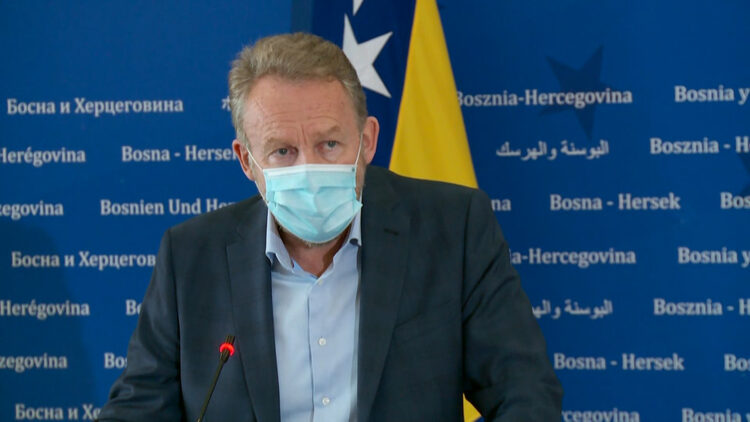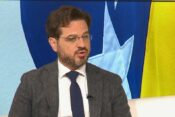
Another meeting between the two leading Bosniak and Croat parties was concluded on Wednesday without producing any results as the leaders only agreed to postpone negotiations about a new election law until after local elections in November.
The Bosniak Party for Democratic Action (SDA) and Bosnia’s Croat Democratic Union (HDZ BiH) have been arguing over changes in Bosnia’s Election Law for years.
The HDZ conditioned the formation of the government of Bosnia’s semi-autonomous Federation (FBiH) region after general elections two years ago with changes of the law that would ensure that only Croats can elect their representatives instead of all citizens living in the region being able to vote for whomever they want. Bosnian Croats insist on this change because they do not want the Bosniak majority to keep electing their representatives, which occurred several times already.
Bosniaks, however, insist on a citizen concept in which anyone can vote for any candidate regardless of his ethnicity.
According to SDA leader Bakir Izetbegovic, there is no point in amending the Election Law unless the results of the 2018 election in Bosnia’s semi-autonomous Federation (FBiH) region are implemented – a process which he said the HDZ BiH is blocking.
“A serious continuation of the talks between the SDA and the HDZ is not realistic until the results of the 2018 election are implemented,” he said, noting that the HDZ has been blocking the formation of the FBiH government for two years.
“Why would we have changes in the Election Law if we’re not going to be implementing election results?” he asked.
“The SDA expects the HDZ to discontinue the mechanisms with which they are blocking the naming of members of the FBiH Constitutional Court and the forming of the government,” he said.
On the other hand, Dragan Covic from the HDZ BiH is pushing for Election Law changes first and criticised the SDA for the way the party is negotiating.
“It seems like the SDA has taken a stance that we should negotiate but not agree,” he said.
Covic did, however, say that he was satisfied with the meeting regarding the issue of elections in Mostar.
The southern city did not have elections for the past 12 years because the Constitutional Court found in 2010 that the election process in the city was not in line with the Constitution and the two sides could not agree how to solve the problem.
They only reached an agreement on the issue this year and the election for Mostar is set for December 20.






